Secrets to Slow Down Aging
Looking young is already predetermined in your DNA, its up to you to slow down the aging process.
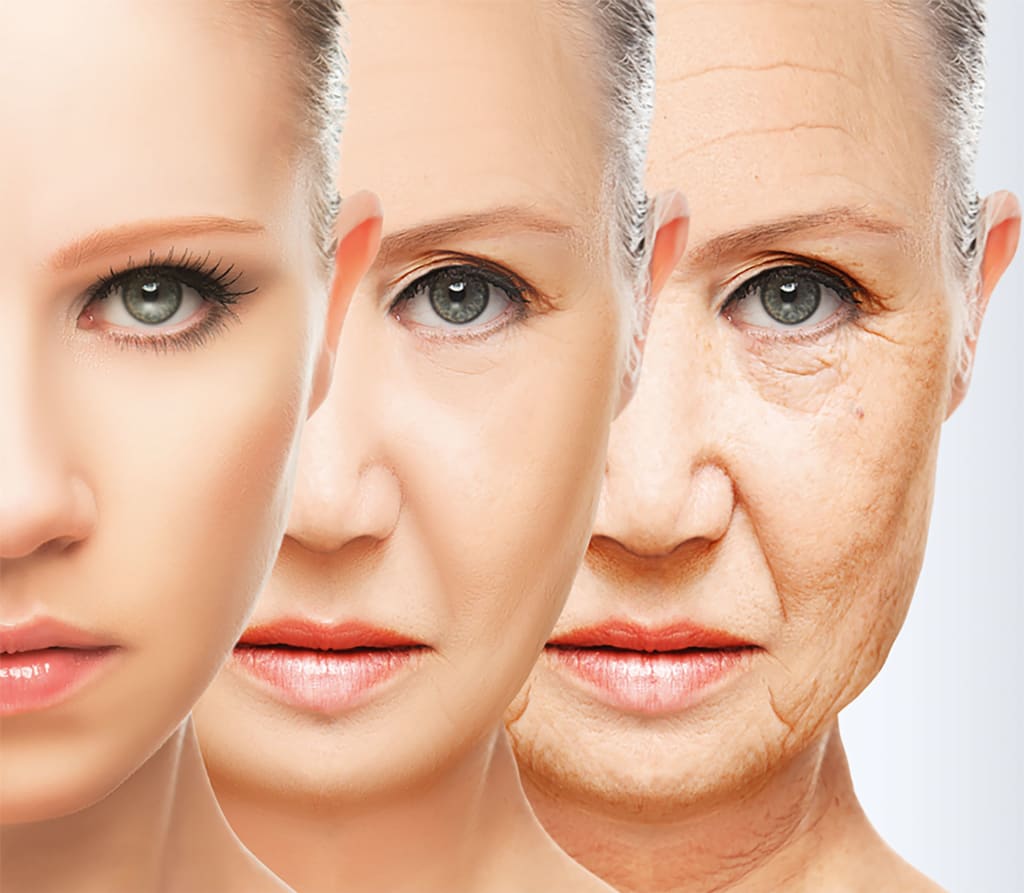
Who among us hasn't scanned the mirror, wondering how well our face will age? Surprisingly, it's fairly easy to gauge, as you'll soon discover. And if you don't like the answer? There's a lot that can be done for faces that are prone to rapid aging. There's also a new incentive: In a recent study, people whose faces looked older than their years were found to be biologically older than their birthdays. The punch line: While genes determine what you start out with, how slowly or speedily your face ages thereafter depends heavily on what you do with what you've got.
Ahead, the key factors that indicate whether a face is likely to age early, late or right on schedule. Our sources throughout are Alan Matarasso, M.D., a New York City-based plastic surgeon and assistant attending surgeon at Manhattan's Eye, Ear and Throat Hospital, and Roger Katz, M.D., a Long Island, New York-based cosmetic facial surgeon.
Maintaining a Youthful Edge

Image via Zakkamall
Genetically speaking, aging appears to roll along at a constant, DNA programmed rate. People fortunate enough to look five or ten years younger than their actual age seem to maintain that edge for life (which also holds true when appearance outdistances years). However, it's all too easy to accelerate the aging process, particularly by sunning. For example, merely average sunbathers—people who go outside on summer weekends but skirt the sun after a few hours—soak up three times the damaging, aging rays of those who rarely seek sun.
Faces age from the top down. Early signs appear on the forehead (wrinkling, sagging) and around the eyes (crow's-feet crinkles, slight lid droop). One reason: These areas are constantly creased to express emotion, and their minimal fat layer and thin skin covering make it easy for expression lines to become permanently etched. The other reason, again, is sun: The more damage you do, the less resistant all face skin becomes to wrinkles, blotching and sagging. And with less resistance, it's more likely to age faster than normal. Its not just what you do to stay looking young but who you are genetically that determines how old you'll look.
Signs of How Well You’ll Age
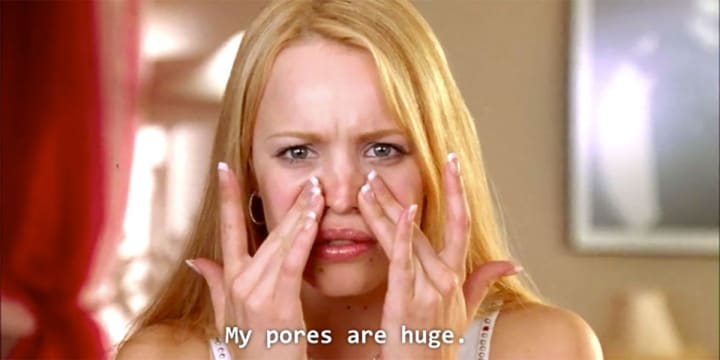
Image via Cosmopolitan
- Hair color: "Good" agers tend to be dark-haired. Blond hair correlates with fair, sun-vulnerable skin; red, even more so. Both are linked to Sun protective pigment.
- Eye color: Again, darker colors may signal greater sun resistance and thus slower aging, blue, gray or hazel are more common in light-skinned people and can confer higher sun risk.
- Skin color: All skin reacts to sunning by producing additional pigment as a defense against burning. But fair skin, with less pigment to begin with, is less able to rebuff the Sun's onslaught.
- Bone structure: Prominent brows, cheekbones and strong jawlines provide an extra measure of skeletal support, delaying loosening skin from sliding down into sags.
- Lubrication: Oily skin with large pores has more cell-moisturizing, weatherproofing sebaceous glands. Dry skin, at a lubricating disadvantage for life, wrinkles faster because sebaceous activity in all skin slows over time due to a decrease in the size and number of glands (and it has fewer to start with). A rough analogy: Oily skin bounces back from creasing like fresh bread; dry skin is more like toast.
The more "bad" factors you're born with, the more age-protective you'll need to be of your face. You'll want to invest in more of the age-fixing treatments on the chart, right, too. And you're a prime candidate for making every one of the following face-age controllers work for you.
Everyone Can Control Face Aging
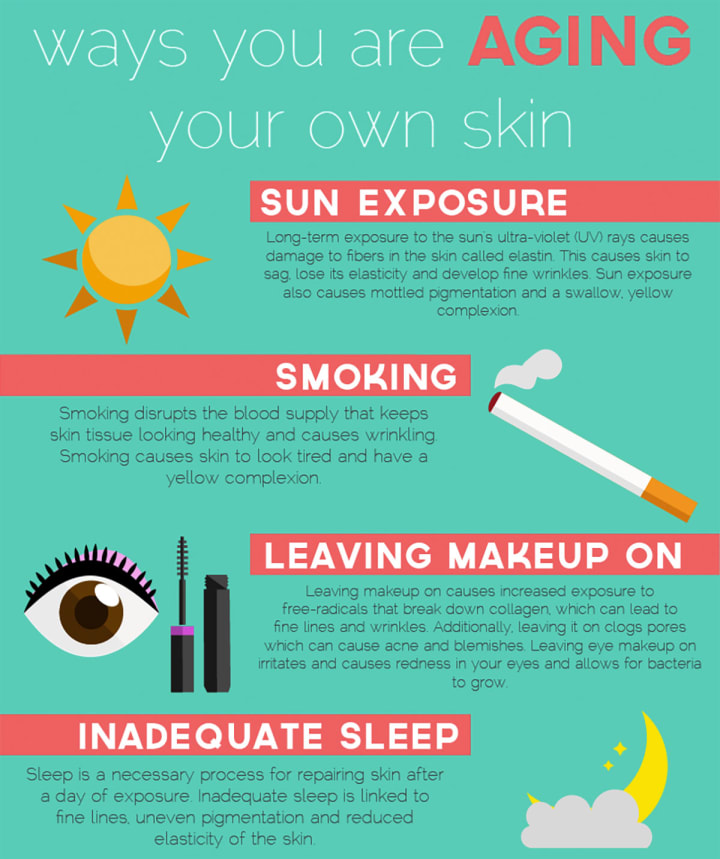
Image via McGuiness Dermatology
- Smoking: It encourages premature wrinkling, particularly around the eyes. A possible reason is the formation of aldehydes, which stiffen the skin's collagen and elastin network and reduce its elasticity. The physical action of smoking—sucking and puffing—probably also contributes to creasing around the mouth. Katz warns that quitting won't reverse smoking-induced skin damage.
- Circulation: Health conditions such as high cholesterol and high blood pressure speed aging because they cramp the skin's blood supply. Adequate control of these problems, however, curtails the effect.
- Weight swings: Even a ten-pound weight gain can stretch facial skin. The more often this skin is stretched, the less likely it is to shrink back.
- Sun exposure: The vast majority of aging signs come from unprotected skin exposure, so by not wearing sunscreen, you're actually accelerating the process. Intelligent sun protection, however, can block face-aging effects. It can also add to your longevity: People who sun heavily (three times more than average) develop skin cancer six to nine times more than average.
- Sleep: The every day stress and chaos are melted away as your mind and body are at one in a peaceful bliss. R.E.M. sleep rejuvenates and restores an individual. R.E.M. sleep, also referred to as Rapid Eye Movement sleep, is a critical part of natural anti aging.
- Makeup Removal: Taking off your makeup at night is important, but you should do it gently. The last thing you want to do is rub, tug, or scrap the skin around your eyes to get that last little bit of mascara off. You can cause broken blood vessels and puffiness. You want to get all the dirt, grease, and grime out of your pores by any means necessary. When people use harsh soap in order to get a squeaky clean feel, they strip their skin of its natural oils and accentuate fine lines, stick to a gentle cleanser and don't scrub — your skin will thank you later.
Sex = Youth

Image via Bustle
Sex can take a full ten years off your looks-if you're male. Particularly during their 40s and 50s, men generally look considerably younger than women of the same age because their slightly thicker male skin resists sun damage more effectively. Beard follicles also provide added support. There's one more liability for the female face: postmenopausal hormonal drop-offs, which promote thinning of the skin's supportive supply of fat. The news here: Estrogen-replacement therapy, which eases or eliminates other menopausal side effects, also helps prevent this one. And though it's still a somewhat controversial treatment, the benefits increasingly seem to outweigh the risks. Some studies claim that making love three times a week in a stress-free relationship was associated with looking a full decade younger.
Sexual intercourse also boosts our immune system, prevents stagnation, allowing us to feel more alive and sweat out toxins from our pores. This translates to our skin’s radiance and being more at ease with facial expression. As we use our facial muscles to express ourselves during a sexual encounter), ultimately, these muscle exercises give a post-sex glow and helps to ward off wrinkles. Also sweating is sure to impart a dewy glow, however sex increases circulation that triggers flushed face. Besides sex, there is only one other activity that releases the anti-aging hormone oxytocin, and that is childbirth.
About the Creator
George Gott
Writer & Social Media Editor for Jerrickmedia who is an avid reader of sci-fi and a fierce defender of women, minority, and LGBTQ rights.


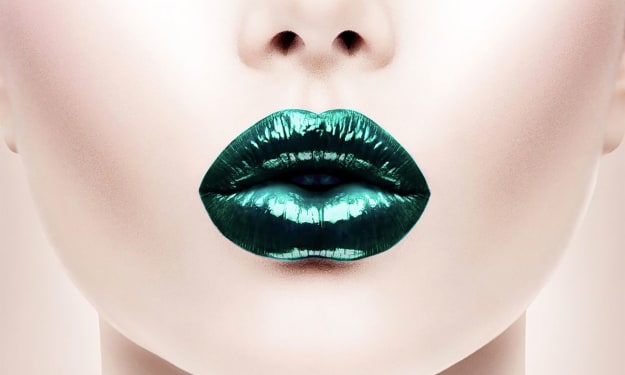

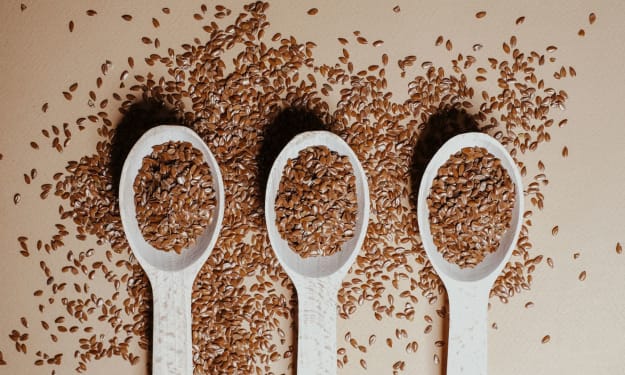

Comments
There are no comments for this story
Be the first to respond and start the conversation.